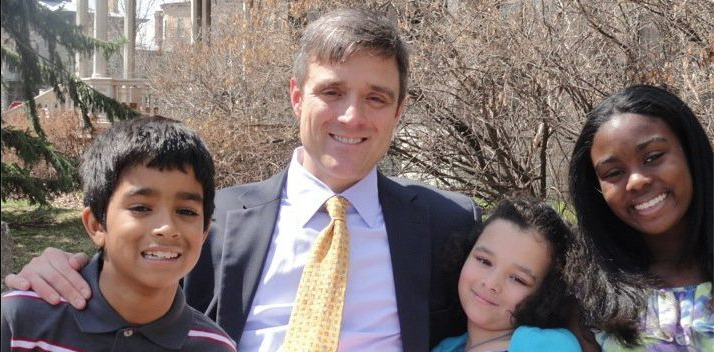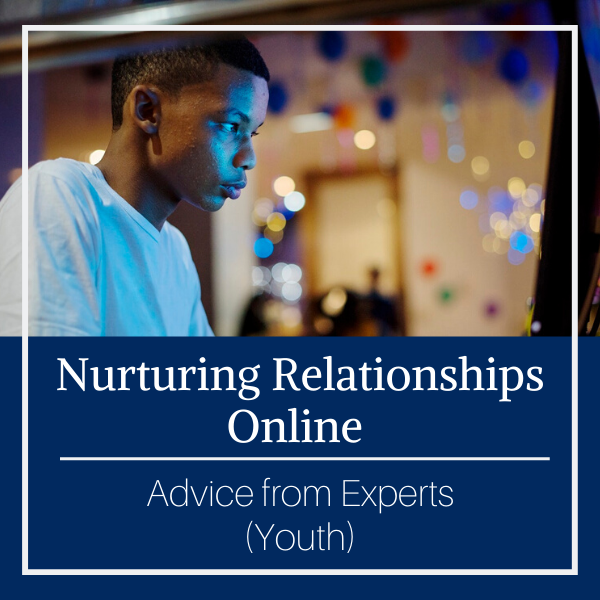Blog
Expectations and Assumptions: A White Man’s Experience With Racial Profiling
By: Kent Pekel
In the days since the verdict in the Trayvon Martin trial and especially following President Obama’s slow and deliberate description of how the most powerful man in the world was once followed in stores and heard car locks clicking as he walked across streets because of his race, I have thought often of the singular encounter I have had with racial profiling during the 45 years I have spent on this earth as a white man. That encounter occurred in the Bahamas, where my wife Tanya and I were staying in a hotel while visiting her extended family with Lauren, her daughter from her first marriage. Lauren was technically my stepdaughter, but I loved her then and continue to love her now as much as a biological child of my own. It’s important to the story to note that both Tanya and Lauren are African-American and I am white.
Lauren was five years old at the time of the trip and, given that we lived in Minnesota, we thought we should take advantage of the warm Bahamas weather to teach Lauren to swim. We took to the pool and went to work turning Lauren’s dog paddle into the beginnings of an actual stroke. Because Tanya was then pregnant with our son Adam, she had a limited amount of energy for kicking and splashing, so after an hour she went up to our hotel room to rest. Not long after Tanya left, a lifeguard or a security guard – I don’t remember which it was – came to the edge of the pool and asked, “What is your relationship with this girl?” I still remember how my stomach dropped as I tried to figure out how to answer him while holding Lauren up in the water before she launched herself on another nervous swim across the pool. After a moment, I told him that this was my step-daughter, and he took a few steps back from the pool but continued to watch every motion I made. To put it mildly, that exchange and the continuing scrutiny took the joy out of teaching a five-year-old child to swim, so I told Lauren that it was time to rejoin her mother in our hotel room.
I still remember the eyes of the guy by the side of the pool as we pulled ourselves up and grabbed some towels to dry off. I was seething inside but felt powerless to do anything other than leave. Once we got up to the hotel room, the scene was the same as the one that has been experienced by countless families with young children in a hotel after splashing in a pool. We toweled off, we started to change clothes, but then there came a knock on the door. Tanya opened the door to find the manager of hotel security. The manager began by telling her that he had been asked by the attendant at the pool to check on the welfare of the young girl who had been swimming with the white guy. As I listened to Tanya tell the man at the door that the girl was, in fact, her daughter, and that the man teaching her to swim was, in fact, her husband, I couldn’t believe what I was hearing. Who were the staff at this hotel to investigate my effort to teach my daughter to swim? I felt a mixture of rage, outrage, and humiliation – the likes of which I had never experienced before and that I have not experienced since. After Tanya explained the situation to the hotel security manager, he quickly withdrew from the doorframe and the situation. To this day, I have no idea if the man by the pool in the Bahamas approached Lauren and me because there was an actual problem with white guys in their 30s playing in hotel pools with five-year-old black girls, or if there was just something about me or our family that made him mad.

Photo: Kent Pekel poses with his children, Adam, left, Victoria, and Lauren.
In the decade since that incident occurred, many things have transpired in my life, including our loss of Tanya to breast cancer seven years ago. But I still remember the anger that I felt that day by the pool in very visceral ways. As I have listened to the discussions of Trayvon Martin’s death and George Zimmerman’s trial in recent days, I have thought more than once about that incident in the Bahamas. The thread that connects my minor and isolated experience with racial profiling and Trayvon’s tragic one is, I think, the power of expectations and the danger of assumptions. As a white man in America, the encounter by the pool in the Bahamas was my one and only experience with racial profiling. Were I to undergo even a few more of those experiences – much less a lifetime of them – I have absolutely no doubt that it would deeply shape my sense of what I could expect and achieve in the world. I have no doubt that I would develop an aggressive edge that some would see as looking for trouble, but that I would see as a proactive strategy for self-defense.
Expectations and assumptions can start either a virtuous circle or a vicious one. When we expect the worst, we are more likely to get it, and when we get it, it reinforces the sense that we should always expect the worst. The converse, however, is also true. When we expect the best – when we set high expectations and avoid assumptions – we are more likely to encounter the best. And expecting and then encountering the best reinforces our sense that we should always give people the benefit of the doubt.
That sounds like a nice, neat lesson to learn from the tragic situation that left a teenager dead a year ago in Florida. It’s not. Setting high expectations and avoiding assumptions requires deep discipline, and it sometimes flies in the face of statistical averages and conventional wisdom. One of the remarkable things about President Obama’s statement on the death of Trayvon Martin last week was that even as the president decried the senseless loss of Trayvon, he also noted that African-American boys are more likely to be both the perpetrators and the victims of violence. He didn’t oversimplify the situation even though doing so would have made it an easier story to tell the nation.
For me, the hard but inescapable lesson is this: even though there may be evidence that suggests that profiling is merited, when we profile we invite an anger that turns worst case scenarios into self-fulfilling prophecies. That lesson is relevant in more situations than the one that tragically ended in Trayvon’s death on a street in Sanford, Florida, last year. It is relevant in classrooms, in youth programs, in neighborhoods, and anywhere else we encounter young people who are trying to define their place in the world. The best way we can honor the life of Trayvon Martin is to make this a moment in our lives and in our nation when we resolve to end the cycles of low expectations and mistaken assumptions that hold our children and our society back from being all that they can, should, and absolutely must be.


